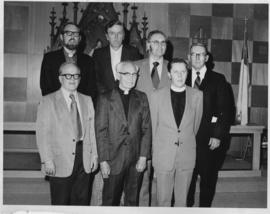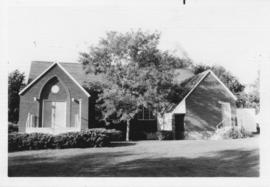Identity elements
Reference code
Name and location of repository
Level of description
Title
Date(s)
Extent
Content and structure elements
Scope and content
This folder contains a congregational historical record, a congregational statistical record, various letters, and letters of call.
System of arrangement
Conditions of access and use elements
Conditions governing access
Physical access
Technical access
Conditions governing reproduction
Languages of the material
Scripts of the material
Language and script notes
Finding aids
Acquisition and appraisal elements
Custodial history
Immediate source of acquisition
Appraisal, destruction and scheduling information
Accruals
Related materials elements
Existence and location of originals
Existence and location of copies
Related archival materials
Related descriptions
Notes element
General note
The first Lutheran services held in Lind were led by Rev. Hein of Spokane in 1890. In 1891, Rev. Kropp was called to serve Lind as well as the Lutherans in Ritzville and Sprague. Rev. Gillman moved to Lind in 1903 and served Good Hope as well as a Pentacostal congregation west of Lind. By 1916 the parish consisted of Lind, Connell, and Eltopia, and by 1952 the Lind-Connell alignment was severed. Ground was broken September 5, 1954 for the present church, with the laying of the cornerstone following on April 10, 1955. Dedication of the new church took place November 11, 1956. In 1973 a yoked ministry began with the Lind United Methodist Church which continued through June of 1977, when Good Hope decided to break its relationship with the Methodist congregation and call its own pastor. By January 1,1978, the Lutheran churches in Lind, Sprague and Ritzville had agreed to try a Cluster Ministry for eight months. At the end of this time all three congregations voted to extend the ministry for an indefinite period of time.


